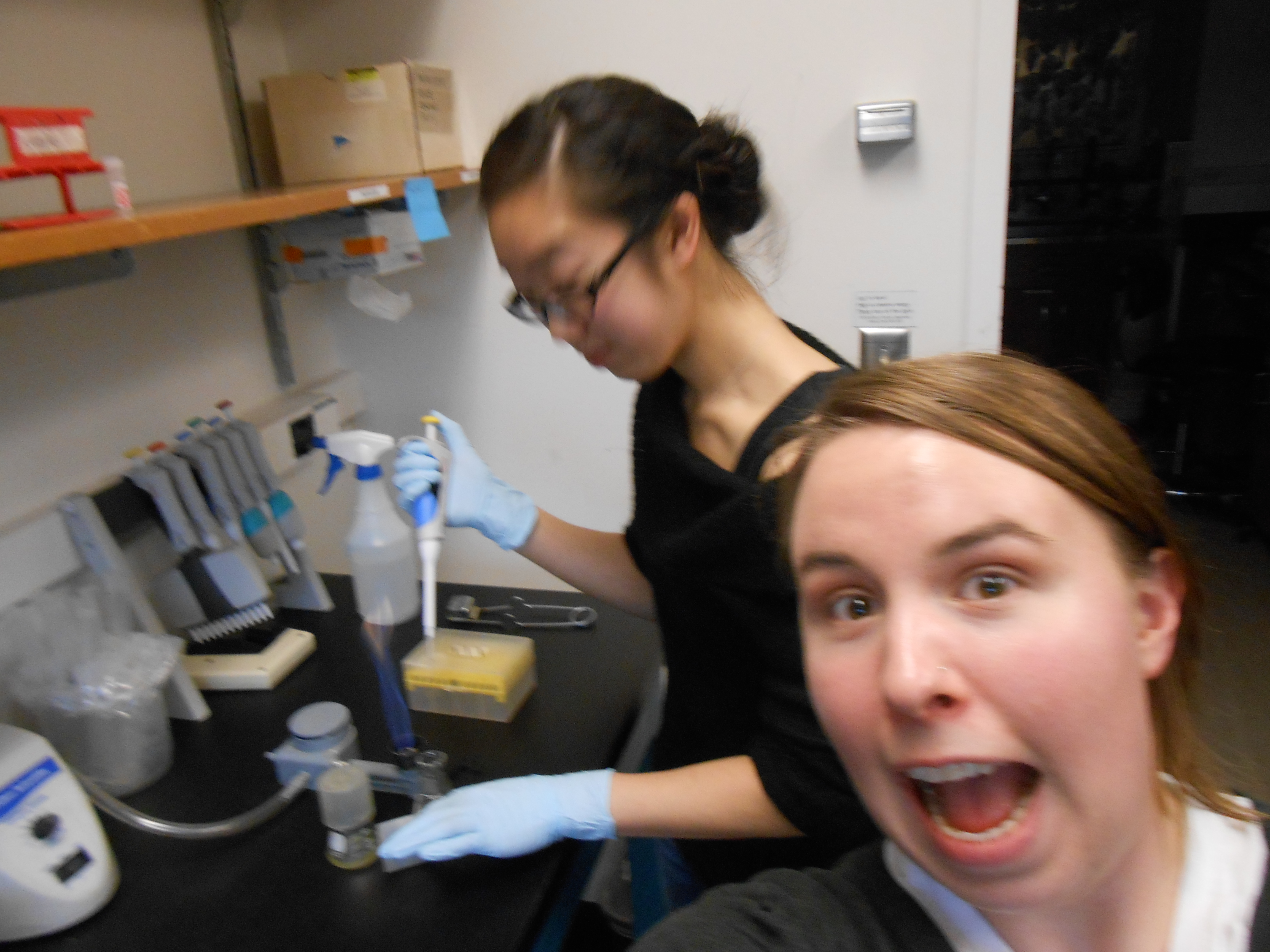Bio 482 Press

Fig: Emily prepares the bacterial host for phi-6, and Clementine...is there too.
Research Description
Thermostability is the capacity of an organism to survive and thrive at high temperatures and is a characteristic with many biotechnological applications, such as food processing. We are seeking to understand the mechanisms of thermostability in viruses by using an RNA virus, phi-6 Cystovirus. We are evolving the phi-6 virus to become thermostable by exposing it to a target temperature of 61°C over many generations (wild type viruses grow at 25°C). In order to see if exposure to different intermediate temperatures affects the genetic pathway to thermostability, we will expose the phi-6 virus to different temperature regimes prior to reaching the target temperature. The genome of phi-6 has already been characterized, which enables us to compare the genome of the evolved, thermostable phi-6 viruses to the ancestor and allows us to study the genetic basis of thermostability. In future studies, we hope to use these thermostable viruses to learn about costs and benefits of maintaining thermostability.
Back to Biology 482 Homepage